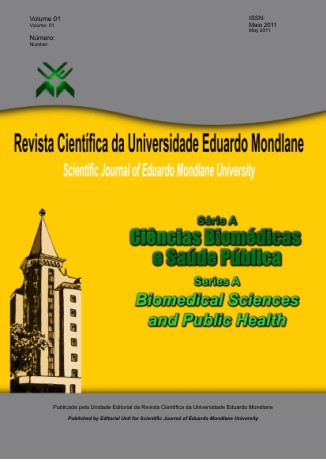CRISE DE DESENVOLVIMENTO HUMANNO EM TEMPOS DA PANDEMIA DA COVID-19 EM MOÇAMBIQUE: o caso específico de Cabo Delgado
Resumo
A pandemia da Covid-19 chega numa altura em que se registava um desenvolvimento considerável nos indicadores de desenvolvimento Humano. A cada ano, o mundo progredia tanto a nível de acesso a Educação, quanto na longevidade e na estabilização da renda. Este progresso poderia não ser ao nível desejado, porém, revestia-se de um significado relevante por se tratar de um avanço de âmbito Social. O ano 2020 é marcado por várias inquietações de âmbito económico que afectam tanto o desenvolvimento como o seu crescimento. É na busca de uma análise económica do impacto da Covid-19 em Moçambique com base num exame da tendência dos indicadores do desenvolvimento humano que surge este estudo. Assumindo alguns dos indicadores básicos do desenvolvimento humano do PNUD, com destaque para a saúde, renda per capita e educação, o estudo envereda por uma abordagem quantitativa mista, com particular interesse por Cabo Delgado. Da análise da situação, concluiu-se que a COVID-19 influenciou na decadência dos Indicadores de Desenvolvimento Humano em todo o país, mas que a situação é pior na Província de Cabo Delgado por causa da situação de duplo flagelo: pela Covid-19 e pela guerra. A decisão de restringir os atendimentos médicos hospitalares está a causar uma ruptura social silenciosa e descontrolada, pois não se sabe o que pode estar a acontecer com as parturientes que tiveram alta das maternidades às pressas e aos milhares de doentes de malária que começa por não ser grave.
Referências
CHIPOSSO, E. Educação em Moçambique em tempos de Covid-19: uma reflexão centrada nas escolas rurais, Jornal Txopela, 11 de Maio 2020.
DIRECÇÃO DE RECURSOS HUMANOS: O Plano Nacional de Desenvolvimento de Recursos Humanos para a Saúde (PNDRHS 2016-2025), Termos de Referência para a Avaliação do Meio Termo do Plano Nacional de Desenvolvimento dos Recursos Humanos da Saúde de Moçambique, Maputo. 2016.
FRANCO, J. L. F., Indicadores de Saúde, revista Unasus. (s/d).
FUNDO MONETÁRIO INTERNACIONAL, Estudos económicos e financeiros: perspectiva económica regional, Jornal Noticias 21 de Maio de 2019.
GHEBREYESUS, T. A. & URPILAINEN, J. Opinião: Covid-19 é crise de saúde que define nosso tempo, 18 de maio de 2020. Disponível em: https://www.dw.com/pt-br/opini%C3%A3o-covid-19-%C3%A9-crise-de-sa%C3%BAde-que-define-nosso-tempo/a-53488244
NYUSI, J. Comunicação à Nação de Sua Excelência Filipe Jacinto Nyusi, Presidente da República de Moçambique, sobre o Termo do Estado de Emergência, no âmbito da Pandemia do Corona Vírus – Covid-19. 29 de julho 2020. Maputo.
ORGANIZAÇÕES DAS NAÇÕES UNIDAS. (2020). Educação, a Ciência e a Cultura. Revista da
ONU News, Disponível em https://news.un.org/pt/story/2020/04/1711192. Acesso em: 10 de Abril de 2020.
PRESSE, F. Unesco: metade dos estudantes do mundo sem aulas por conta da Covid-19. Revista Globo. 18 de março de 2020.
PLANO ESTRATEGICO DE EDUCAÇÃO, Desempenho do sector de Educação, Maputo. 2019. Disponíevel em https://www.globalpartnership.org/sites/default/files/document/file/2020-05-Mozambique-ESP-IR.pdf. Acesso em: 04/11/2020.
UNICEF. Os impactos da Covid-19 nas crianças em Moçambique . 2020. revista da Unicef disponível em https://www.unicef.org/mozambique/media/2521/file/Os%20impactos%20da%20COVID19%20nas%20crian%C3%A7as%20em%20Mo%C3%A7ambique.pdf .


